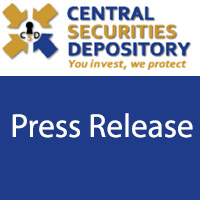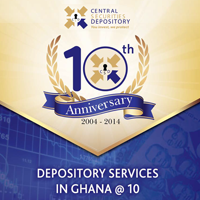 December 2011 inflation was 8.58 per cent, representing a minimal 0.03 per cent rise from the 8.55 per cent recorded in November 2011.
In ordinary terms, therefore, the general price levels of goods and services in the country went up by 8.58 per cent in December 2011, as against the 8.55 per cent change raterecorded in the previous month in the year under review.
December 2011 inflation was 8.58 per cent, representing a minimal 0.03 per cent rise from the 8.55 per cent recorded in November 2011.
In ordinary terms, therefore, the general price levels of goods and services in the country went up by 8.58 per cent in December 2011, as against the 8.55 per cent change raterecorded in the previous month in the year under review.
The December 2011 rate compares favourably with the government’s revised end-year 2011 inflation target of nine per cent.
The Government Statistician, Dr Grace Bediako, who announced this at a press conference in Accra yesterday, said monthly inflation (comparing price changes in one month to another) for December 2011 stood at 1.16 per cent, indicating a 0.70 per cent increment from the November 2011 rate of 0.69 per cent.
She said the average inflation rate for 2011 (January to December) was 8.73 per cent.
She said the non-food group of the services inflation basket continued its dominance, accounting for well over two times of the food inflation rate in the month under review. While food inflation for December stood at 4.04 per cent, non-food inflation ended the year at 11.73 per cent.
Petrol and transport charges, according to the Government Statistician, recorded the highest inflation rates (price movements) in December 2011.
On the regional outlook, Dr Bediako said the Central Region recorded the highest regional inflation rate of 11.1 per cent, with the Upper East and the Upper West regions recording the lowest rate of 5.55 per cent in December 2011.
She admitted that the minimal utility price hikes at the tail end of November 2011 impacted directly on the December inflation figure but added that the impact was offset by positive rates recorded in other sub-groups.
Concerning the impact of the 15-30 per cent upward adjustment in petroleum product prices on inflation this year, Dr Bediako said, “We expect that the increment will reflect in next month’s (January’s) figure.”
That notwithstanding, she said “the extent to which that will reflect on the entire rate will depend on the impact of other competing factors on the whole inflation basket”.
Petroleum price hikes are heavily expected to cause a general rise in the price levels of goods and services in those months, thereby causing annual inflation to inch up.
A rise in inflation in January and February, as projected by most analysts, will repeat the 2011 trend in which a 30 per cent upward adjustment in petroleum prices at the time caused consistently declining inflation to rise, only to resume a downward trend in March 2011.


